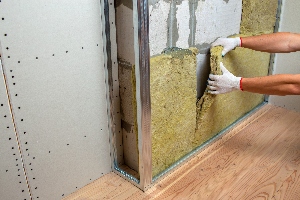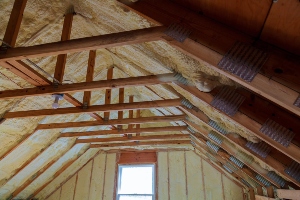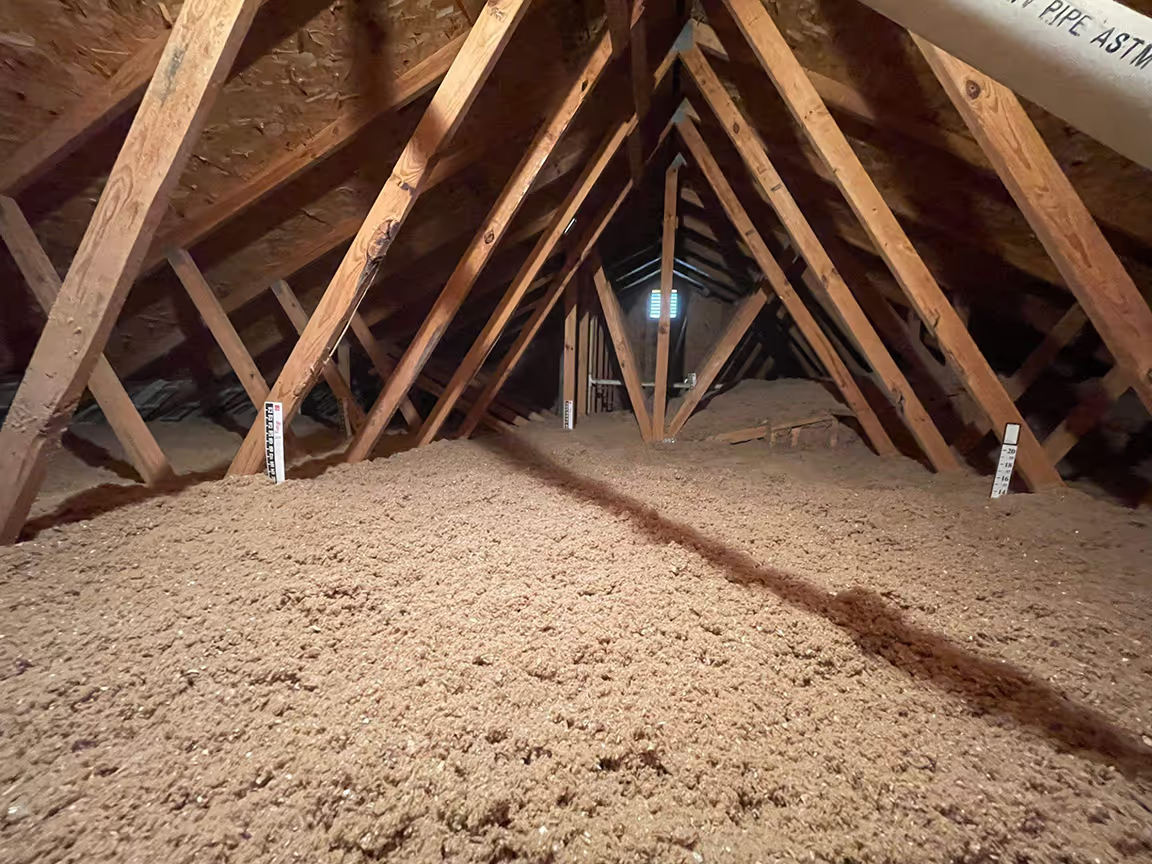Insulating your crawl space is a smart home improvement that can save you money on energy bills and make your home more comfortable. Many homeowners in the DMV area (DC, Maryland, Virginia) wonder about the costs before starting this project.
Crawl space insulation in the DMV area typically costs between $1.00 and $4.50 per square foot, with most homeowners spending $500 to $3,700 total depending on the size of the space and materials used.
The type of insulation you choose affects the overall price. Fiberglass batts and rolls are more budget-friendly at $0.30 to $1.50 per board foot, while spray foam provides better performance at $2 to $5 per square foot. We find that for a standard 1,000-square-foot crawl space, materials alone can cost between $300 and $2,000.
Labor costs add to the total price, especially if old insulation needs removal first. This typically adds $1 to $2 per square foot to your project. The good news is that properly insulating your crawl space can reduce your energy bills and improve your home's comfort level, making it a worthwhile investment for DMV homeowners.
This guide breaks down current 2025 pricing, helping you understand where your money goes and how to make the most of your investment in comfort and efficiency.
Here's what you'll see in this article:
- What affects the cost of crawl space insulation?
- Average cost to insulate a crawl space in the dmv
- Is crawl space insulation worth the investment?
- Additional benefits of insulating your crawl space
- How to get an accurate crawl space insulation estimate
Let's dive in!
What affects the cost of crawl space insulation?
Several key factors influence how much you'll pay for crawl space insulation in the DMV area. These include the size of your space, existing conditions, insulation material choice, and regional labor rates.
Size of the crawl space and square footage
The total square footage of your crawl space directly impacts your insulation costs. Based on 2025 data, most homeowners pay between $1.00 and $4.50 per square foot for crawl space insulation.
For an average 1,000-square-foot crawl space, expect to pay around $3,550, though costs can range from $2,600 to $16,900 depending on other factors.
Wall height also matters. Taller crawl spaces require more material to insulate properly, increasing your overall cost.
When calculating your budget, measure both the floor area and the height of your foundation walls that need insulation. This gives you the total square footage requiring coverage.
Condition of the space: moisture, debris, accessibility
Pre-existing conditions in your crawl space can significantly affect installation costs.
Moisture problems must be addressed before installing insulation. This might include:
- Installing vapor barriers ($0.50-$0.70 per square foot)
- Adding drainage systems ($2,000-$6,000)
- Fixing leaks or water intrusion issues
Debris removal adds to labor costs. Contractors typically charge $368-$520 for cleanup and preparation.
Accessibility issues can increase labor expenses by 25-50%. Crawl spaces with:
- Very low clearance (less than 24 inches)
- Limited entry points
- Obstructions like pipes and ductwork
- Cramped working conditions
All require more time and effort, which translates to higher labor costs in your final quote.
Choice of insulation material: fiberglass, spray foam, rigid foam
Your insulation material choice significantly impacts your project cost:
Fiberglass batts or rolls:
- Most affordable option ($0.40-$1.00 per square foot)
- Works well in ventilated crawl spaces
- Less effective in high-moisture environments
Spray foam insulation:
- Premium option ($2.00-$5.00 per square foot)
- Creates air-tight seal
- Excellent for unvented or sealed crawl spaces
- Provides highest R-value per inch
Rigid foam boards:
- Mid-range cost ($1.00-$2.50 per square foot)
- Good moisture resistance
- Can be cut to fit around obstacles
- Typically used on foundation walls
We find most DMV homeowners choose spray foam for its superior performance despite the higher upfront cost, as it offers better long-term energy savings.
Labor costs in dc, maryland, and virginia
Labor rates vary significantly across the DMV area, affecting your total project cost.
Washington DC typically has the highest labor rates, with insulation contractors charging 15-20% more than suburban areas due to higher operating costs and parking challenges.
Northern Virginia counties (Arlington, Alexandria, Fairfax) have the next highest rates, usually 5-10% above the regional average.
Maryland suburbs (Montgomery, Prince George's counties) tend to have more competitive rates, though still higher than rural areas.
Most contractors in the DMV charge between $65-$95 per hour for crawl space work. Projects typically require 2-3 workers and take 1-3 days depending on complexity.
Expect higher rates during peak seasons (fall and early winter) when demand for insulation services increases before the cold weather sets in.
Average cost to insulate a crawl space in the dmv
Homeowners in the DMV (DC, Maryland, Virginia) area typically pay between $1,500 to $4,500 for crawl space insulation. Prices vary based on square footage, insulation type, and whether additional services like vapor barriers or encapsulation are included.
Cost range per square foot (materials + labor)
In the DMV region, crawl space insulation costs range from $1.25 to $5.00 per square foot including materials and labor. Fiberglass batting tends to be the most affordable option at $1.25-$2.50 per square foot. Spray foam insulation, while more effective, costs $2.50-$5.00 per square foot.
Material type significantly impacts your total cost:
Insulation Type
Cost Per Sq Ft (DMV)
Fiberglass
$1.25-$2.50
Rigid Foam
$1.75-$3.25
Spray Foam
$2.50-$5.00
Labor costs in the DMV area typically account for 40-60% of the total project cost, which is slightly higher than the national average due to the region's higher cost of living.
Estimates for 500, 1000, and 1500 Sq Ft crawl spaces
The size of your crawl space directly affects your total project cost. Here are typical cost ranges for common crawl space sizes in the DMV area:
500 sq ft crawl space:
- Basic fiberglass insulation: $625-$1,250
- Spray foam insulation: $1,250-$2,500
1000 sq ft crawl space:
- Basic fiberglass insulation: $1,250-$2,500
- Spray foam insulation: $2,500-$5,000
1500 sq ft crawl space:
- Basic fiberglass insulation: $1,875-$3,750
- Spray foam insulation: $3,750-$7,500
These estimates include basic materials and standard installation. Most DMV homes have crawl spaces between 800-1,200 square feet.
Add-ons that increase the price: vapor barrier, pest guard, encapsulation
Several add-ons can increase your crawl space insulation cost but provide valuable benefits:
Vapor Barrier: Adding a 6-mil or 12-mil vapor barrier costs $0.50-$0.75 per square foot in the DMV area. This protective layer prevents moisture from damaging your insulation and home structure.
Pest Guard: Pest-resistant treatments and barriers typically add $300-$800 to your project. These are particularly important in the DMV's humid climate where termites and other pests thrive.
Drainage Systems: For homes with moisture issues, adding a drainage system costs $1,000-$3,000 depending on complexity.
Mold Remediation: If mold is present (common in DMV crawl spaces), remediation may cost $500-$2,000 before insulation can begin.
These add-ons often provide significant long-term value by extending the life of your insulation and protecting your home.
Crawl space insulation vs full encapsulation: cost comparison
Basic crawl space insulation and full encapsulation serve different purposes and come with different price tags:
Basic Insulation Only:
- Cost: $1.25-$5.00 per square foot
- Primary benefit: Improved energy efficiency
- Average DMV cost for 1,000 sq ft: $1,250-$5,000
Full Encapsulation:
- Cost: $3.00-$7.00 per square foot
- Includes: Heavy-duty vapor barrier, sealing, insulation, and often a dehumidifier
- Average DMV cost for 1,000 sq ft: $3,000-$7,000
Full encapsulation costs 2-3 times more than basic insulation but provides superior moisture control and energy efficiency. This is particularly beneficial in the DMV's humid climate.
We find that many DMV homeowners choose a middle option: basic insulation with a vapor barrier ($1.75-$5.75 per square foot), which provides good value while addressing the region's moisture challenges.
Is crawl space insulation worth the investment?
Crawl space insulation delivers tangible benefits that make it a worthwhile investment for most homeowners. The upfront costs are offset by significant energy savings and improved home comfort over time.
According to the U.S. Department of Energy, air sealing and insulation improvements in crawl spaces and basements across Mid-Atlantic states, including DC, Maryland, and Virginia, can lead to heating energy savings of 14.6% and cooling savings of 9.1% in typical older residential buildings
Energy savings and roi over 5–10 years
Properly insulated crawl spaces can reduce heating and cooling costs by 10-15% annually. For an average home in the DMV area, this translates to $200-$300 in yearly savings. The initial investment of $2,600-$5,000 for a standard-sized crawl space typically reaches the break-even point within 5-10 years.
The ROI becomes even more favorable when considering:
- Increased property value: Insulated crawl spaces are a selling point
- Extended HVAC system lifespan: Less strain means fewer repairs
- Tax incentives: Energy efficiency improvements may qualify for rebates
In cold DMV winters, insulation prevents heat loss through the floor, reducing the workload on heating systems and lowering utility bills substantially.
Preventing moisture, mold, and cold floors
Uninsulated crawl spaces allow moisture to enter your home, creating perfect conditions for mold growth and wood rot. Proper insulation acts as a barrier against these problems, protecting your home's structural integrity.
Benefits include:
- Warmer floors: No more cold feet during winter months
- Better air quality: Reduced mold spores and allergens
- Pest prevention: Fewer entry points for insects and rodents
Insulated crawl spaces maintain more consistent humidity levels, preventing the 50-70% humidity that mold thrives in. This protection extends the lifespan of floor joists and other structural elements, preventing costly repairs down the road.
Additional benefits of insulating your crawl space
Insulating your crawl space delivers significant advantages beyond just energy savings. These benefits extend to your home's systems, comfort levels, and even its market value.
How proper insulation protects your hvac system
Proper crawl space insulation significantly reduces the workload on your HVAC system. When your crawl space is insulated, your heating and cooling systems don't have to work as hard to maintain comfortable temperatures throughout your home.
This reduced strain translates to fewer repairs and a longer lifespan for your HVAC equipment. In the DMV area, where we experience both hot summers and cold winters, this protection is especially valuable.
Your system will run more efficiently, cycling less frequently and using less energy. This efficiency can lead to 10-15% savings on energy bills. Additionally, insulation helps prevent moisture-related issues that can damage HVAC components located in or near crawl spaces.
Benefits for resale value and home inspection
A properly insulated crawl space is increasingly becoming a selling point in the DMV real estate market. Homes with insulated crawl spaces often command higher resale values compared to similar properties without this feature.
During home inspections, inspectors specifically look for crawl space insulation and moisture control. A well-insulated crawl space signals to potential buyers that the home has been well-maintained and is energy efficient.
Many buyers today are environmentally conscious and prioritize energy-efficient features. We've seen that homes with insulated crawl spaces typically sell faster in the DMV area.
The return on investment for crawl space insulation can range from 60-80% of the initial cost when selling your home. This makes it both a comfort improvement and a sound financial decision.
How to get an accurate crawl space insulation estimate
Getting an accurate estimate for your crawl space insulation project requires careful planning and asking the right questions. The right contractor will take time to understand your home's specific needs and challenges.
What to expect during a professional inspection
A professional crawl space inspection is the first step toward an accurate estimate. The inspector will measure your crawl space dimensions and assess current moisture levels, ventilation, and existing insulation condition.
They should check for water damage, mold growth, and pest infestations that could affect the insulation project. A good inspector will crawl through the entire space, not just peek through the access door.
The professional will also examine your home's foundation walls and floor joists to determine the best insulation method. This thorough assessment typically takes 30-60 minutes depending on your crawl space size and condition.
Temperature and humidity readings help determine the R-value needed for your specific climate zone in the DMV area.
Questions to ask your insulation contractor
- What type of insulation do you recommend for my specific situation?
- What R-value will you install and why is this appropriate for my home?
- How will you address moisture issues before installing insulation?
- Will you seal all air leaks and vents before installing insulation?
- Do you include vapor barriers in your estimate?
Ask about their experience with similar homes in your neighborhood. Request a breakdown of materials, labor, and additional services like vapor barriers or pest control.
Confirm if the contractor will handle permits if required in your county. Discuss timeline expectations and whether you need to vacate the property during installation.
Why terra insulation tailors solutions to dmv homes
We at Terra Insulation understand that DMV homes face unique challenges due to the region's humidity and temperature fluctuations. Our estimates reflect these specific considerations rather than one-size-fits-all solutions.
Our team analyzes soil conditions common in Maryland, Virginia, and DC neighborhoods to recommend appropriate moisture barriers. We factor in the age of homes in the area, as older Georgetown or Alexandria homes have different needs than newer constructions in Bethesda or Arlington.
We provide detailed digital reports showing thermal imaging of your crawl space to justify our recommendations. Our estimates include seasonal considerations since DMV summers require different moisture management than winters.
We calculate potential energy savings based on your utility bills to show the return on investment for your specific property.
Conclusion
Crawl space insulation costs in the DMV area typically range from $0.90 to $3.80 per square foot including materials and labor. For an average 1,000 square foot crawl space, homeowners can expect to pay between $900 and $3,800.
The type of insulation you choose significantly impacts the final price. Fiberglass batts ($0.30-$1.50 per board foot) offer an economical option, while spray foam ($2-$5 per square foot) provides superior moisture protection.
Don't forget to factor in additional costs like old insulation removal ($1-$2 per square foot), vapor barriers, and cleanup services ($368-$520). These extras are essential for a complete insulation project.
We recommend getting at least three quotes from local contractors to ensure you're receiving competitive pricing. Many companies offer free inspections and estimates.
Remember that proper crawl space insulation can reduce energy bills by 15-25%, improve indoor air quality, and prevent moisture damage. While the upfront cost may seem significant, the long-term benefits make this a worthwhile investment for your home.
It’s important to note that the prices discussed in this article are general estimates.
Schedule a crawl space inspection with Terra Insulation to get a personalized estimate based on your home’s structure, needs, and budget. Our team specializes in DMV-specific challenges, ensuring your insulation investment delivers long-term comfort and protection.






